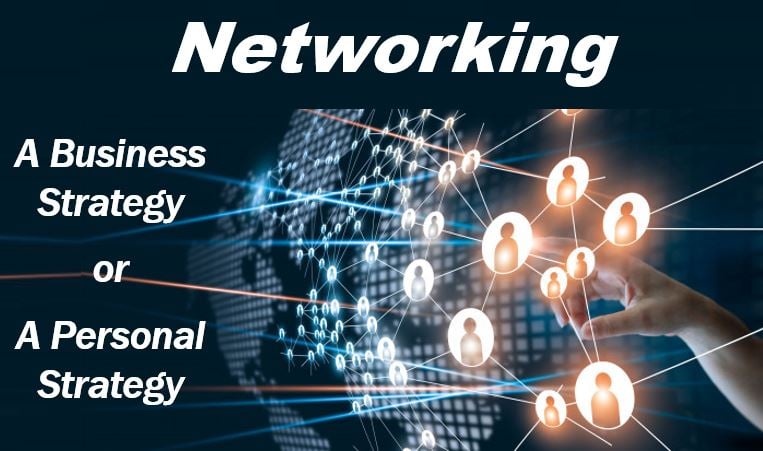Networking refers to the process or action of communicating with other people, companies, and organizations to develop personal or professional contacts. Networkers exchange information with the contacts in their network, which they are forever trying to expand.
 In the world of information technology, networking involves creating a group of computers that all connect digitally and use a set of common communication protocols. This article focuses on the term when it means communicating with other people, companies, organizations, etc. and trying to expand the number of contacts.
In the world of information technology, networking involves creating a group of computers that all connect digitally and use a set of common communication protocols. This article focuses on the term when it means communicating with other people, companies, organizations, etc. and trying to expand the number of contacts.
According to Investopedia.com, networking is essentially about sharing information and ideas with people who share your professional interests, often in casual settings. It’s a way for professionals to expand their circle of contacts and discover job opportunities within their field.
Professionals, specialists, and experts also use it to remain up to date on new developments, breakthroughs, etc. in their fields.
Networking – business and personal benefits
Captains of industry and professionals have known for centuries that networking can enhance their businesses and personal career prospects. In today’s rapidly changing marketplace, it enables continual development and helps make sure that you are never out of the loop.
Networking has been around as long as work itself. It involves making new connections and professional relationships with those inside your industry.
These partnerships can then lead to mutually beneficial business deals which enable businesses to grow and prosper.
Online networking
The Internet has changed many of our activities and interests dramatically. It has changed how we work, play, study, communicate, shop, look for a job, get our news, and watch our favorite movies, shows, and sports. How we build up our web of contacts is no exception.
Online networking mainly focuses on social media, i.e., platforms such as Facebook, YouTube, Twitter, Instagram, LinkedIn, Tumblr, WhatsApp, and WeChat.
Architects, for example, communicate with other architects online through social media platforms. They use articles, studies, or new reports to trigger discussions with their peers. Online seminars and conferences have also become popular avenues for spreading one’s network of contacts.
Network marketing
This type of marketing does not mean selling goods by building up a network of contacts who are customers and prospects.
When businesspeople create a network of sales agents with the purpose of boosting sales, they are involved in network marketing. In this context, agents are salespeople who work on their own.
Networking marketing, a direct selling model, includes salespeople who sell products or services independently. The agent is encouraged to recruit new agents who are also encouraged to recruit new ones themselves. Some people may use the terms cellular marketing, referral marketing, or MLM (multilevel marketing).
Business networking
Startup owners develop relationships with individuals and companies they would like to do business with one day. Their business network helps them build a relationship with people in their field. The more prospects they are in contact with, the higher their sales are likely to be. A prospect is somebody you believe could well turn into a paying customer.
For business networking to be effective, you need to stay in touch with your contacts regularly. Exchanging interesting or valuable information that is not readily available elsewhere can make you very popular and help you increase your number of contacts.
